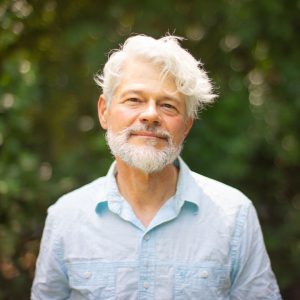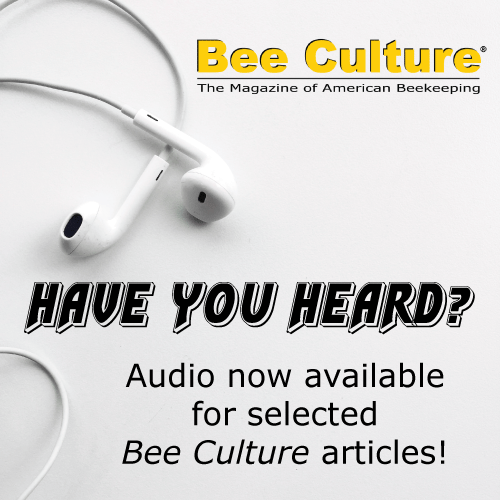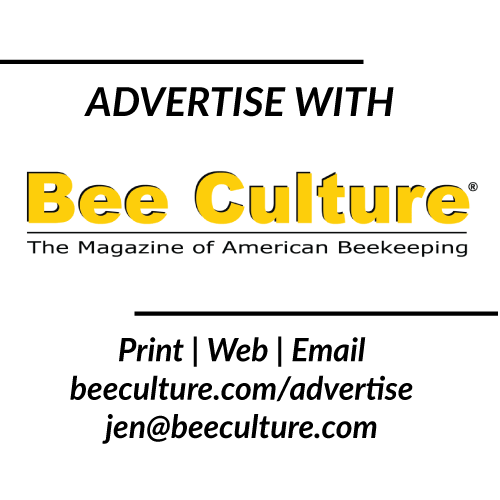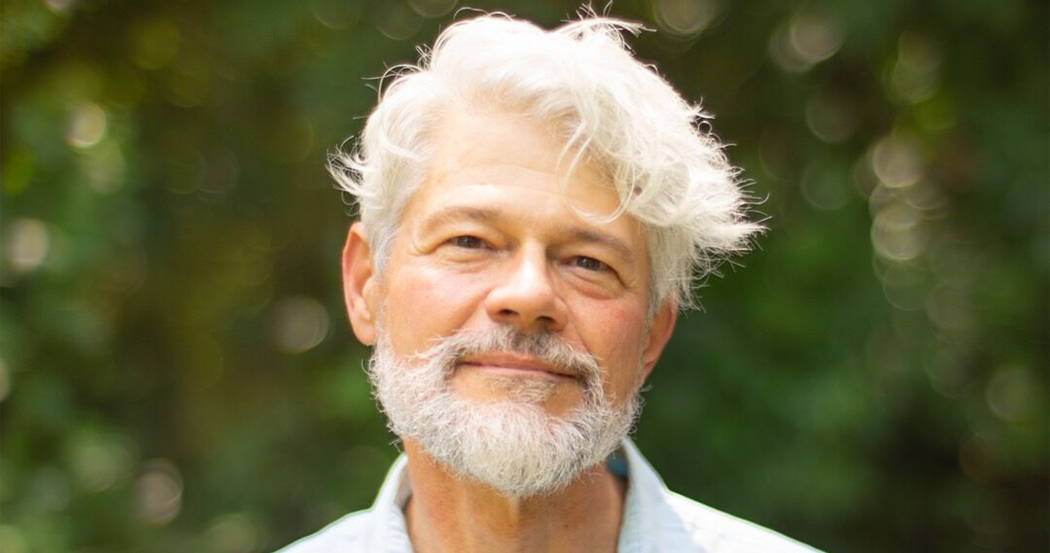 Study Hall
Study Hall
By: Jerry Hayes with Transcription from Barb Bloetscher
Jerry: Dr. Keith Delaplane, I remember the first time I met you long ago, I was driving with Nick Dadant down to see you. I read about you and had seen your picture. As I was parking the car, I saw you walking across the parking lot. I jumped out and said, “Dr. Delaplane, I presume? Since then, we have worked together many times, experienced many things and it has been good over the years.
K: It has Jerry, and from the years perspective, you and I have seen a lot over the years.
J: For Bee Culture readers, I think about what you have done, how you have conducted yourself and it has been exemplary. We all have to start somewhere, so where did you grow up and how did that land you in entomology and bees?
K: That is a good question and one I think about a lot because I have enjoyed my life and my career. As you go through life and experience things, you learn more and more and are reminded more and more that you didn’t get here on your own merits. You stand on the shoulders of your family, friends, communities and colleagues every step of the way. You become aware and grateful. I am forever grateful for my upbringing in North Central Indiana growing up on a farm. My dad and his dad were row crop farmers – corn, soybeans and hogs. It’s a great way to grow up.
J: So you were outside a lot. Were you naturally interested in insects on a flower or a fly in the hog trough?
K: My ticket into entomology and the whole natural world was through honey bees and beekeeping. So, my dad was a farmer, we weren’t plugged into ecology; the idea of ecology was new in the 1960’s and ‘70’s, wasn’t it? Farming had an uneasy relationship with ecology and the natural world. We thought we were partnering with nature but it was different than ecology with plowing, using synthetic pesticides and incorporating fertilizers and all that stuff that today. We know exacts a toll on the environment. I was not really ecologically minded as a kid growing up. I was agriculturally minded.
J: Its all about production, isn’t it?
K: It is! It’s all about production, profits and maximizing efficiency to extract the most we can out of the acreage that we had. In my career though I have seen that shift, a good and real shift which is still occurring today toward farming with ecological principles.
To answer your original question, I was interested in nature and insects. Honey bees fit right into that ecological paradigm and they are a natural bridge into entomology and biology and that is the path I followed. Beekeeping was in my family, my grandfather had bees. It was not unusual back then; most farming families kept a few bees. My father used to help him, but he never really took to it.
Then, when I was a young teenager, my parents gave me a beginning beekeeping kit. At the time I thought it was pretty random, I mean, beekeeping as a hobby? It was pretty rare and thought of as an oddball hobby.
J: But it wasn’t hogs and cattle, right?
K: No, and in fact it became a source of contention at times when my father and I had different plans on how I should spend my Saturday (chuckles). I wanted to work on my bees while he wanted me to help on the farm. Not to detract from my parents’ support of my beekeeping, they paid for all my beekeeping supplies and let me do it.
J: Did you learn on your own or did you have a mentor? It was easier back then, you could put your bees in a box in the Spring then go fishing the rest of the year.
K: Yes it was so much easier then, you only had to check on them a few times then take the honey off. It was a Golden Age! Well, I read all the books, I read the classics like ABC and XYZ of Bee Culture, Hive and the Honey Bee, First Lessons in Beekeeping by the Dadant Family and all its successive editions. I did have a mentor named Mr. Paul Champ. He had 300 hives and was able to make a living on it. So once in a while, when my family was out and about, we’d bring our empty quart jar and he’d fill it up. I remember he kept this big honey storage tank right in his kitchen next to the refrigerator. So he was a natural choice to answer my questions. He made house calls! He was with me the first time I saw a queen. I remember the thrill of seeing that queen! It was real – not a mystery – and in my box of bees! I will never forget that thrill.
Those memories are ancient to me now but they go back to my childhood. That rich smell, that scent is unmatchable by anything else.
J: That smell of aster and goldenrod in the Fall…
K: Yes, that pungency and the fascination in the apiary. Beekeeping is so remarkable at every level and I was thrilled with that as a young person. I had a grasp on nature that my peers did not, so they tended to gravitate to our farm. Beekeeping was so interesting to them.
J: Were you a member of 4-H or FFA?
K: Strangely, no, my father and his family were rather insular. We were mostly on our own. As I pursued through my life and career and I became involved in agriculture and extension, they didn’t really understand what I was doing but they supported me regardless.
J: What was it that you wanted to learn and discover that took you to Purdue and LSU?
K: It’s a beautiful story, Jerry. I married early; in fact, I was married by my last semester as an undergraduate at Purdue. I didn’t have a firm career path in mind. I majored in Animal Science, which again is an agricultural major. So once again, I didn’t know in which world I belonged. I had some ambitions of Veterinary College, but I didn’t have the grades for it. Then, I took a class from a very kind and insightful professor named Dr. Wallace Denton in my last semester in “Marriage and Family Counseling”. Imagine that, it’s not even an agricultural topic! He asked me what I wanted to do with my life. I didn’t know, so he made an appointment with me to talk about it. When we met, he asked me what my interests were. I looked down and mumbled, “Well I like keeping honey bees…” I was a little embarrassed because it was an unusual interest. “Well then,” he said, “you should enroll in graduate school and earn a degree in Entomology!”
So, I threw my hat in the ring and lucked out with LSU. My wife and I packed up our things and moved to Baton Rouge, LA. I thought about that story a lot through my career.
Adults don’t think about their influence on kids; it’s a fine line between meddling and giving guidance. I learned as a father that a tension runs, wondering if you are pushing too far. When do you push and when do you hold back? In 20 minutes, he altered the course of my life!
J: You have certainly had good guidance in your life.
K: Yes, I am very grateful, in fact I have an addendum to that story. I knew his daughter. She lived and grew up in West Lafayette. Fast forward a decade later and we ran into her here in Athens, GA. She is the life of the party here, she’s a local musician. Her parents had multiple occasions to visit her, so I have had many opportunities to tell him how important he has been in my life and that I was very grateful.
J: At LSU, is that where the light came on?
K: Yes, once I got to LSU, everything clicked for me. It was a “Eureka” moment for me. I loved my experience at LSU and at the USDA Lab. My major professor, Dr. John Harbo is a well-known researcher in honey bee breeding and genetics. I was in school with Tom Rinderer, Bob Denko, Anita Collins and others. It was a golden time in my career.
The Department of Entomology at LSU was strong and I had great professors. That, Jerry, is when I realized that honey bees are more than just agriculture, and biology is more than agriculture and where honey bees fit into just about everything. If I had to do it all over again, I would still stick with Biology.
J: So from there you went to University of GA?
K: Yes, so it was rather word of mouth, but John Harbo called me and said they had an opening. So, I applied for the job and to my ever-living amazement, they interviewed me and offered me the job.
I may have been the last of the generation in which I moved from earning my Ph.D. straight to a tenure track position in a university. Now, students have to get one or a series of jobs as a post doc before they land a faculty position.
I have a multiple appointment in extension and research. I’ve had some teaching appointments off and on but mostly I have been in the field, the laboratory and in direct contact with beekeepers. It was good.
I have written many times that honey bees are a window to the world and it is a good metaphor. They bridge so many domains of human activity. I can’t think of any animal or any field of agriculture or a hobby that bridges so many separate spheres of human activity. Honey bees are remarkable and I am honored and pleased to work with them.
J: When you received your tenure track position, what went through your mind? What was your goal?
K: I realized that I had been treated well and given special privileges and opportunities, so, “Don’t blow it, Keith!” (chuckles). I have never been one to give myself the benefit of the doubt, and have always had self-doubts, so I was motivated by fear. I applied myself and went through the steps I had been taught to do research and “pretended” to be a good researcher. I figured, if I worked on it, I would eventually become a good researcher. You go through mental gymnastics and after a while it sticks. It’s hard for me to be prideful.
J: That is certainly a motivator! How long were you at UGA and how many students did you have?
K: I was at UGA for 33 years and had seven graduate students under my direction and sat on 15 committees. I also had two post docs. I’m grateful to watch a young mind advance from an elementary mind to one who understand and has skills maybe above your own.
J: But that is the goal, isn’t it?
K: It is the goal! An economy of justice occurs but as you become older, you are happier with that arrangement. I’m happy that they get the glory they deserve, you want to give of yourself to give them that recognition. The saying goes, “youth is wasted on the young”, and while I appreciate the humor it is not exactly true. As you learn life’s lessons and you are managing your own interior life, you become better at contextualizing your own ego. Having an ego is important, but your opinion is not the only one and may not be correct. You rarely know the entire story. That is part of the challenge. This is certainly true with managing honey bees. Beekeeping and beekeepers are interesting because they are so diverse in their understanding.
J: I wish someone would invest say, $50,000 to study the profile of beekeepers. That would be very interesting.
K: I am authentically curious about that. Are goat farmers or gardeners like that or are we a unique creature? Beekeepers are an interesting slice of humanity. We are somewhat self-selecting because we like nature but otherwise we are all over the board with social skills, income level, religious and political views, and education. This makes it difficult to navigate a bee meeting. (laughs)
J: Tell me, what has been your biggest success and a failure that you regret?
K: Well, I was inspired the first few months on the job which is probably typical, but I happened upon the good fortune of serendipity to have a desire to record inspections in the yard for extension purposes. The producer was on staff at UGA and an affiliate with the local public broadcasting station. He saw the value in my recordings and published it for a three year TV show. That really put me on the map and enabled me to travel more for talks and demonstrations. I was invited to speak all over the country, in fact the world. This helped with my early academic promotions.
Next, I teamed up with Dr. Mike Hood at Clemson University. He and I were the closest colleagues with a shared appointment in honey bees in the USA as the two universities are only 60 miles apart. We collaborated a lot. We worked on Varroa mite IPM and published the first economic threshold for Varroa mites which was badly needed. We also ran a series of studies using non-chemical techniques to control Varroa. This occupied about 10 years of the middle of my career.
Unfortunately though, it never became overly successful. This falls in the category of a failure. I think we are overly optimistic to think that bees can develop a true resistance to Varroa mites and the pathogens that result from their damage to the bees. We can produce honey bees with some hygienic traits to remove Varroa mites from the colony, but we are using defense mechanisms that were co-opted to defend the bee from something else, for instance, chalkbrood was the first genetic trait found, in which bees would remove infected mummies from the hive, and the detection and removal of pupae infected with AFB. The overwhelming weight of the data have not come up with a ringing solution for Varroa mite control through genetic resistance.
J: When a queen is mating with 14-20 drones, you don’t know the ancestry of the drones or the queen.
K: True! Traditional animal husbandry doesn’t apply with honey bees; it is much more difficult to think in those terms. Honey bees have multiple mating, how it uses genetics to advance the colony is complicated.
That is why I am so interested in polyandry (multiple mating) which is now the focus of my research. It is successful and provides very basic research. It is going to benefit the fundamentals of science. Also, some of my students and I have conducted a great deal of research on blueberry pollination. It is easy to convert that basic science to deliverables that will help growers. You can use it to adjust the number of colonies needed in the orchard, for example.
Science is self-adjusting, some of it will stand the test of time, while some will fade away.
J: Welcome to life, eh?
K: Yes, science is not a mechanism for finding answers to solve life problems reliably, but it is the best mechanism humanity has and is a necessary part of the process. Some studies fail and are never reported, thus repeated over and over.
J: Would you please provide some advice to BC readers?
K: If you dig into honey bee biology and appreciate the organism, you will enjoy it even more. Reading and finding clues to keep honey bees healthy will give you more pleasure, improve colony health and increase your profit line. Honey bees are a bottomless pit of wonder, curiosity and amazement.
I am working on a book which will be out next year, called Honey Bee Social Evolution, published by John Hopkins Press. I wrote about the similarities between different organisms and the honey bee colony as a unit. They all have the same dynamics. Also read Hilda M. Ransome’s book, The Sacred Bee in Ancient Times and Folklore. It was written in the 1930’s but it is a classic. She wrote about how honey bees have been used worldwide in literature, religion and poetry for centuries. There is no end to this insect and what it can give you.









